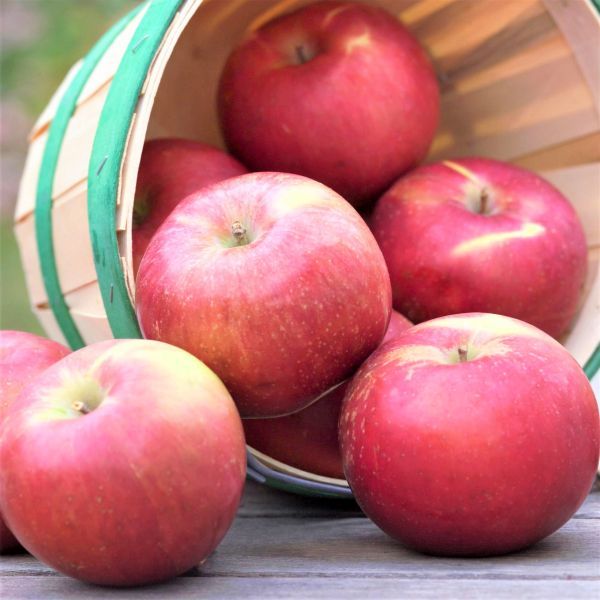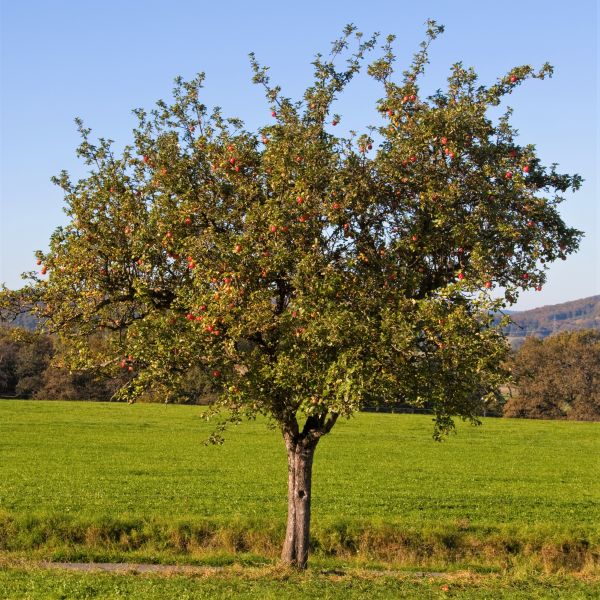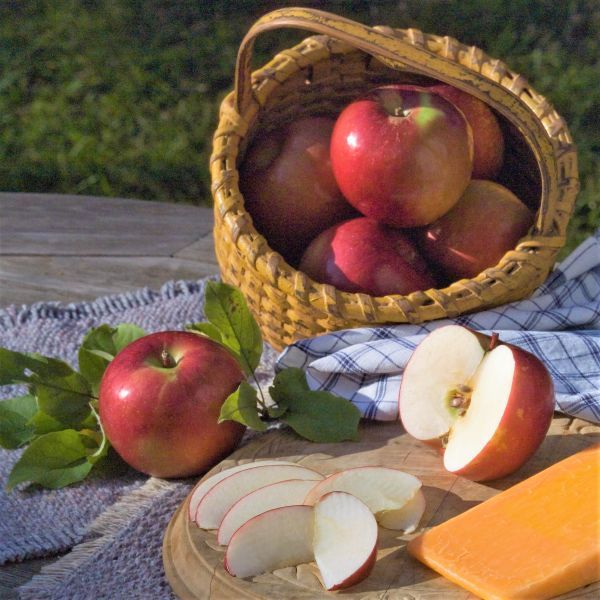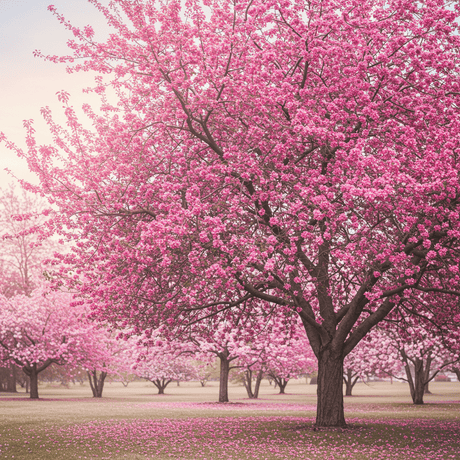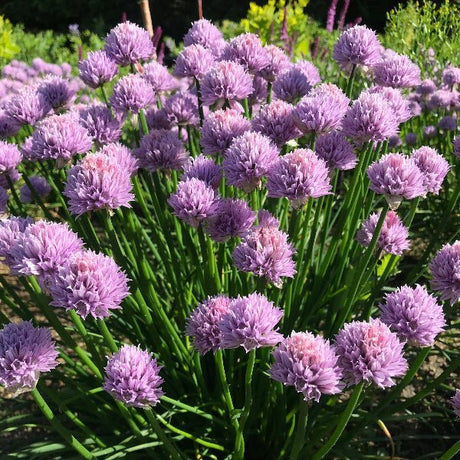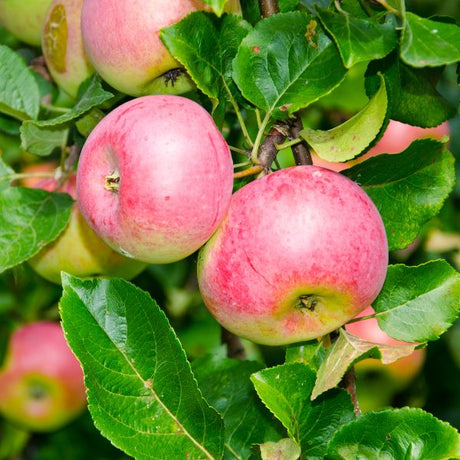SnowSweet® Apple Tree
Malus 'Wildung'
Plant Sentry™
Plant Sentry™

Plant Sentry™ Protected
Your order is protected by our compliance system that:
- Prevents restricted plants from shipping to your state
- Ensures plants meet your state's agricultural requirements
- Protects gardens from invasive pests and diseases
Delivery and Shipping
Delivery and Shipping
Delivery and Shipping
Fast, Safe Plant Delivery
Ships in 3-4 business days • Tracking provided • Weather protected
| Under $50 | $9.99 |
| $50 - $99.99 | $14.99 |
| $100 - $149.99 | $16.99 |
| $150 - $198.99 | $24.99 |
| $199+ | FREE |
✓ Zone-specific timing • ✓ Professional packaging • ✓ Health guarantee
Understanding Plant Options
Nature Hills offers plants in two main formats:
- Container Plants: Grown in pots with soil, sized by container volume and plant age
- Bare Root Plants: Dormant plants without soil, sized by height measurements
Container Plant Sizes
Container sizes indicate plant age and growing capacity rather than liquid volume equivalents. Our containers follow industry-standard nursery "trade gallon" specifications, which differ from standard liquid gallon measurements.
Young Plants (6 months to 18 months old)
| Container Size | Actual Volume | Metric Equivalent |
|---|---|---|
| 2" x 2" x 3" | 0.18 - 0.21 dry quarts | 0.20 - 0.23 dry liters |
| 4" Container | 0.31 - 0.87 dry quarts | 0.35 - 0.96 dry liters |
| 4.5" Container | 0.65 dry quarts | 0.72 dry liters |
| 6" Container | 1.4 dry quarts | 1.59 dry liters |
| 1 Quart | 1 dry quart | 1.1 dry liters |
| 5.5" Container | 1.89 dry quarts | 2.08 dry liters |
Established Plants (18 months to 2.5 years old)
| Container Size | Actual Volume | Metric Equivalent |
|---|---|---|
| 2 Quart | 2 dry quarts | 2.2 dry liters |
| #1 Container | 2.26 - 3.73 dry quarts | 2.49 - 4.11 dry liters |
| 5" x 5" x 12" | 3.5 - 4.3 dry quarts | 3.85 - 4.74 dry liters |
Mature Plants (2-4 years old)
| Container Size | Actual Volume | Metric Equivalent |
|---|---|---|
| #2 Container | 1.19 - 1.76 dry gallons | 5.24 - 7.75 dry liters |
| #3 Container | 2.15 - 2.76 dry gallons | 8.14 - 12.16 dry liters |
Large Plants (3-5 years old)
| Container Size | Actual Volume | Metric Equivalent |
|---|---|---|
| #5 Container | 2.92 - 4.62 dry gallons | 12.86 - 20.35 dry liters |
| #6 Container | 5.25 - 6.01 dry gallons | 23.12 - 26.42 dry liters |
| #7 Container | 5.98 - 6.53 dry gallons | 26.34 - 28.76 dry liters |
Bare Root Plants
Bare root plants are sold by height from the root system to the top of the plant. Plants may exceed minimum height requirements.
Common Sizes:
- Trees: 1 foot, 2 feet, 3 feet, 4 feet, 5 feet, 6 feet
- Shrubs & Perennials: 1 foot, 18 inches, 2 feet
Important Notes
Container Volume Specifications
- Trade Gallon Standard: Our containers follow industry-standard "trade gallon" specifications established by the American National Standards Institute (ANSI Z60.1) for nursery stock
- Volume Variations: Actual soil volume may vary due to plant root systems and growing medium settlement
- Age Indicators: Container size primarily indicates plant age and maturity rather than liquid volume equivalents
Growing Conditions
- Plant size can vary based on variety and growing conditions
- Container size helps indicate plant maturity and establishment level
- Larger containers generally mean more established root systems and faster landscape establishment
Seasonal Availability
- Bare root plants are available seasonally when dormant
- Container plants are available throughout the growing season
- Specific varieties may have limited availability in certain sizes
Questions?
For questions about specific plant sizes or availability, please contact our plant experts who can help you choose the right size for your landscape needs.

Plant Sentry™ Protected
Your order is protected by our compliance system that:
- Prevents restricted plants from shipping to your state
- Ensures plants meet your state's agricultural requirements
- Protects gardens from invasive pests and diseases
Plant Profile & Growing Essentials
Cold hardy, Flowering, Edible, Ornamental Berries/Fruit, and Attracts pollinators
-
Botanical Name
-
Height
-
Width
-
Growing Zones
-
Sunlight
-
Growth RateModerate
-
Flower Color
-
Leaf Color
-
Fall Color
-
Pollinator FriendlyYes
-
Pollinator Required
-
Bloom PeriodEarly Spring, Late Spring
-
FragrantYes
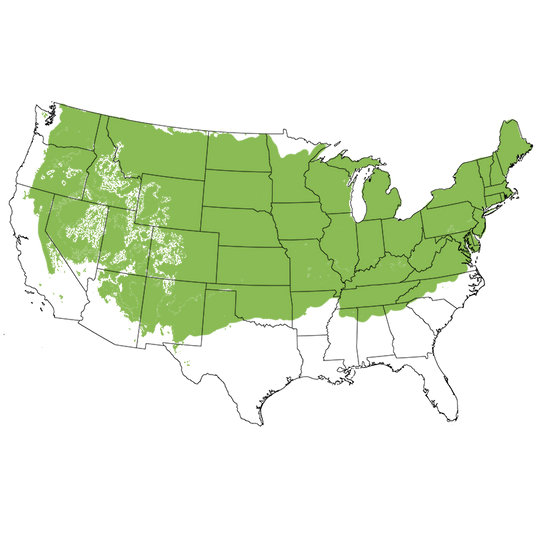
Growing Zones 4-7
Perfect for Fruit Salad SnowSweet® Apple Tree!
- Beautiful Red Fruit With Bronzy Red Blush
- Sweet with a Slight Tart Balance & Rich Overtones
- Snow White Flesh
- Bred to Resist Browning After Cutting
- Wonderful Foliage & Drooping Form
- Easy Care & Low Maintenance
- Very Cold Hardy
- Late Season Harvest
- Gorgeous Fragrant Pink Buds Burst into White Blooms
- 800-1000 Chill Hours
- Yellow Fall Color
- Fantastic Fruit Salads, Fresh Eating & Sauces
- Ornamental & Specimen Plant
Fruit salad, the staple of brunches everywhere, has always had a dark side. You know what we're talking about - after hours of cutting up fresh fruit into perfectly sized chunks to make the salad look great, especially if you're feeding a big group.
Then, after all that hard work you unwrap your masterpiece on the buffet table, only to see the apples have already started to brown! Nothing makes a fresh-fruit salad look as unappetizing as browning apples in the mix.
Now we have SnowSweet® Apple Tree (Malus 'Wildung') to the rescue! This relative newcomer to the orchard scene, introduced in 2006 at the University of Minnesota, was developed to have snow-white flesh that stays crisp and the snow-white flesh is slow to oxidize when exposed to air (turning brown) long after you slice it.
The beautiful fruit is that classic apple-red and features a bronze-red blush and overtones, so they look as appetizing as they taste. The white flesh has a sweet-tart balanced flavor with rich overtones. It's even described as buttery!
SnowSweet® is a hybrid between Sharon and Connell Red, and the sweet fruit ripens in September, just in time for your fall recipes! These apples even store for a long time, up to 2 months or more!
How to Use SnowSweet® Apple Tree In The Landscape
This tree is as beautiful as the fruit it bears. Very open but with a slight 'droop' that lends a very romantic look to the home landscape.
The size is perfect front and center as specimen plants and focal points! The spring bloom is enough to make lovely rows along your driveway and property curb appeal boosting power.
Small orchards and urban gardens have room for these fantastic ornamentals. Perfect for dual-purpose, edible landscaping and garden decor!
For low shade and privacy, strategically place a few around the patio and seating areas for lovely fragrance, bloom display and shade.
#ProPlantTips For Care
Requiring full sun, especially morning sun to dry the leaves of dew, Apple trees have the best yields when placed in 8 hours of sun a day or more!
Best in organically rich, well-drained soil that is fertile. Regular watering also provides the largest crops, so protect your investment with consistent access to moisture and a layer of mulch to retain moisture and insulate the root system.
This is a great Northern Apple tree where it survives harsh winters without a problem and hardy zones 4 through 7.
Featuring average resistance to scab and fire blight, these are very adaptable fruit trees!
For best yields, you'll want to pick another early or mid-season variety like Empire or Red Delicious to plant with it as a pollinator.
No more waiting until you get to the party to slice up the apples at the last minute!
For fantastic appetizers and sauces, don't be embarrassed at the brunch buffet table again! Order brown-resistant SnowSweet® Apple Tree from Nature Hills today!
SnowSweet® Apple Tree Frequently Asked Questions
When to Plant SnowSweet® Apple Trees
Planting Bareroot trees as soon as you can dig a hole in spring and until hot weather, the earlier the better. Plant container Apple trees throughout the growing season with complete success - that is the benefit of container plants - to extend the planting season. Your County Agricultural Extension Office is a great resource for first and last frost dates in your area.
How to Plant SnowSweet® Apple Trees
Dig a large hole only as deep as needed to accommodate the bareroot or container root ball, and twice as wide. Add Nature Hills Root Booster to speed root establishment. Remove the pot or bag and situate it into the hole so the top of the soil (soil line if bareroot), is level with the new location's soil being careful not to plant too deep. Water in again very well and backfill with the same soil you dug up, tamping down gently to ensure there are no air pockets.
Top off with a 3-4 inch thick layer of Arborist mulch. Consider staking your tree to keep its trunk growing straight for the first year to ensure it stands tall against strong winds and drifting snow.
When to Prune SnowSweet® Apple Trees
Trim off any broken branches from delivery as soon as you take them out of the box. Prune and trim apple trees while dormant, in late winter or early spring, before you see new growth.
How to Prune SnowSweet® Apple Trees
Dormant prune to:
- Remove any double leaders or narrow crotch angles
- Eliminate any crossing branches
- Thin interior branching and leave the fruiting spurs and strong branches in place opening up the canopy
- Branching at least 24-36 inches above the ground
Prune Apple trees in the summer to:
- Control size and shape by reducing the length of longer new growth on vigorous trees
- Remove water sprouts on the main trunk or older branches in the crown
- Remove suckers at the base of the trunk
- Thin fruit during heavy years on established trees
How to Care for SnowSweet® Apple Trees
Growing an apple tree is easy when proper soil, good drainage, attention to moisture, and regular fertility are maintained. Once you've chosen an apple tree that works for your climate, in the size you need for your landscape, and its pollinator (if needed), then you've accomplished half the battle!
- Apple trees do best in full sun and well-drained soil
- Water your apple trees when it gets dry - especially during the fruit production stage, and drought periods to keep them stress-free
- Use arborists' wood chips to mulch over the roots of your apples and have your soil tested to see what your soil may be lacking before adding fertilizers
- Maintenance pruning and shaping
Apple trees will tolerate a wide range of soils, so long as water and nutrients are not limited and the pH level is adequate.
How to Fertilize SnowSweet® Apple Trees
For the first year, water alone is the most important. It is always best to get a soil test to see what your soil is lacking before adding more fertilizers. Once established, a fertilizer routine may be beneficial. We do offer some excellent slow-release organic options, applied according to the package directions.
Fruit trees need more phosphate and it's possible to apply too much nitrogen which affects the soil's pH. Test soil acidity or alkalinity using a pH Tester.
Fertilize in spring when you first see new growth emerging.
- Don't overdo it
- Phosphates are your friends
- Pay attention to pH in areas with extremely high or low soil pH
- Follow the directions
SnowSweet® Apple Tree Pollinating Info
SnowSweet® is not self-fruiting and needs a pollinating partner. Pair with one of these varieties:
Harvest Times for Snowsweet® Apple Trees
SnowSweet®’s are typically ready to harvest in late August through early September.
Early-Season? Mid-Season? Late-Season? The terminology can be confusing for new apple tree growers. Weather, climate and your tree determine when it's ripe.
For Apples:
- Early-season is usually June-July
- Mid-season can be August-September
- Late-season can be from late September-November
The growing season consists of spring, summer, and fall, and varies with climate and weather. Areas with longer growing seasons in the warmer hardiness zones can greatly affect the harvest times for each particular apple variety grown in your area.

